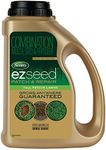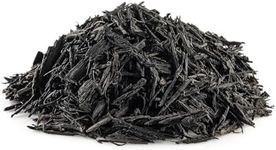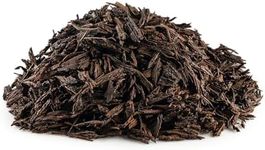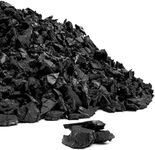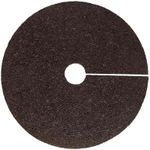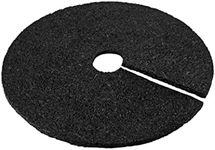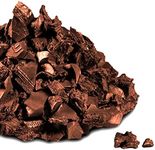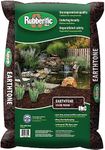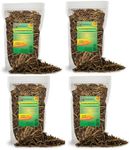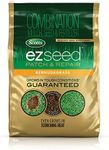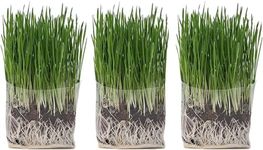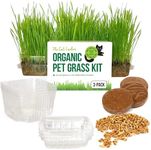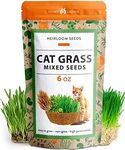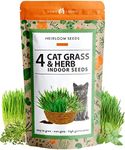Buying Guide for the Best Garden Mulches
Choosing the right garden mulch can significantly impact the health and appearance of your garden. Mulch helps retain soil moisture, suppress weeds, and improve soil fertility. When selecting mulch, consider factors such as the type of plants you have, the climate in your area, and your gardening goals. Understanding the key specifications of different mulches will help you make an informed decision that best suits your garden's needs.Material TypeMulch can be made from various materials, including organic options like wood chips, straw, and compost, or inorganic options like rubber, stone, and plastic. Organic mulches decompose over time, adding nutrients to the soil, which is beneficial for plant growth. Inorganic mulches do not decompose and are often used for decorative purposes or in areas where long-term weed suppression is needed. Choose organic mulch if you want to improve soil health and inorganic mulch if you need a low-maintenance option.
TextureThe texture of mulch can range from fine to coarse. Fine-textured mulches, such as compost or shredded leaves, break down quickly and are ideal for vegetable gardens and flower beds where soil enrichment is desired. Coarse-textured mulches, like wood chips or bark, decompose slowly and are better suited for pathways and around trees and shrubs where long-term coverage is needed. Consider the type of plants and the area you are mulching to determine the appropriate texture.
ColorMulch comes in various colors, including natural shades like brown and black, as well as dyed options in red, gold, and other hues. The color of mulch can enhance the visual appeal of your garden and complement the landscape design. Natural-colored mulches blend well with most garden settings, while dyed mulches can add a pop of color and highlight specific areas. Choose a color that matches your garden's aesthetic and the overall look you want to achieve.
Moisture RetentionOne of the primary benefits of mulch is its ability to retain moisture in the soil. Mulches with high moisture retention, such as straw or compost, are ideal for gardens in dry climates or during hot summer months. These mulches help keep the soil moist, reducing the need for frequent watering. If you live in a humid area or have plants that require less water, you may opt for mulches with moderate moisture retention, like wood chips or bark.
Weed SuppressionMulch helps suppress weeds by blocking sunlight and creating a barrier that prevents weed seeds from germinating. Mulches with good weed suppression properties include thick layers of straw, wood chips, and rubber mulch. If weed control is a primary concern, choose a mulch that provides effective coverage and consider applying a thicker layer. For areas with fewer weed problems, lighter mulches like compost or shredded leaves may suffice.
Decomposition RateThe rate at which mulch decomposes affects how often you need to replenish it. Fast-decomposing mulches, such as compost and shredded leaves, need to be replaced more frequently but provide quick soil enrichment. Slow-decomposing mulches, like bark and wood chips, last longer and require less maintenance. Consider how much time and effort you are willing to invest in maintaining your mulch and choose accordingly.

